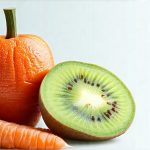The digestive system is often taken for granted until something goes wrong. From the moment food enters our mouths to when waste exits the body, a complex series of processes breaks down nutrients, absorbs essential vitamins and minerals, and eliminates what’s left over. When this delicate ecosystem is disrupted—by illness, poor diet, stress, or medication—it can lead to uncomfortable symptoms like bloating, gas, diarrhea, constipation, and even more serious conditions. Recovery from digestive issues isn’t simply about alleviating immediate discomfort; it’s about restoring the integrity of the gut lining, rebuilding beneficial bacteria populations, reducing inflammation, and optimizing nutrient absorption for long-term health. Many people seek out various strategies to support this recovery, with antioxidants increasingly gaining attention as a potential aid. You may also find helpful information regarding daily habits that can aid in digestive comfort.
Antioxidants are compounds that combat free radicals, unstable molecules that can damage cells, leading to inflammation and hindering the body’s natural healing processes. While commonly associated with immune function, their role extends far beyond that—particularly within the digestive tract. The gut is constantly exposed to oxidative stress from food digestion, bacterial metabolism, and even the normal inflammatory response when dealing with irritants. This makes it a prime target for antioxidant support. Understanding how antioxidants might contribute to digestive recovery requires looking at the specific mechanisms involved, the types of antioxidants most beneficial, and ways to incorporate them into a supportive lifestyle. It is important to remember that dietary changes should always be discussed with healthcare professionals. If you suspect artificial flavors may be contributing to your problems, it’s worth investigating further.
The Gut-Oxidative Stress Connection
The digestive process inherently generates oxidative stress. Think about it: breaking down food requires chemical reactions that produce free radicals as byproducts. Furthermore, the gut microbiome – that vast community of bacteria residing in our intestines – also contributes to this process through metabolic activity. While a healthy gut microbiome is essential for digestion and overall health, even beneficial bacteria create some level of oxidative stress during their normal functions. This isn’t necessarily negative; the body has natural defense mechanisms like endogenous antioxidants (produced within the body) to neutralize these free radicals. However, when the balance tips in favor of free radical production – due to factors like a poor diet high in processed foods, chronic inflammation, or environmental toxins – it can overwhelm the system and lead to cellular damage.
This oxidative stress isn’t just limited to the gut lining itself. It impacts the intestinal barrier, which is responsible for selectively allowing nutrients into the bloodstream while keeping harmful substances out. When this barrier becomes compromised (often referred to as “leaky gut”), increased permeability allows toxins and undigested food particles to enter circulation, triggering an immune response and further exacerbating inflammation – creating a vicious cycle. Antioxidants can play a role in protecting the intestinal barrier from oxidative damage, helping to maintain its integrity and reduce overall systemic inflammation. Moreover, they support the function of cells involved in gut repair and regeneration. If you’re recovering from pancreatitis, these recovery tips can be especially helpful.
Specifically, antioxidants help neutralize free radicals before they can cause damage. They donate electrons to stabilize these unstable molecules, effectively rendering them harmless. This process is crucial for reducing inflammation and promoting healing within the digestive tract. The types of antioxidants most relevant for digestive recovery aren’t limited to just one; a diverse range found in whole foods provides the broadest spectrum of protection.
Antioxidant Powerhouses for Digestive Health
The world of antioxidants is vast, but some stand out as particularly beneficial for supporting digestive recovery:
- Vitamin C: A potent water-soluble antioxidant crucial for collagen synthesis (essential for gut lining repair), immune function and protecting against oxidative stress. Excellent sources include citrus fruits, berries, peppers, and broccoli.
- Vitamin E: A fat-soluble antioxidant that protects cell membranes from damage caused by free radicals. Found in nuts, seeds, vegetable oils, and leafy green vegetables.
- Carotenoids (Beta-carotene, Lycopene, Lutein): These pigments found in brightly colored fruits and vegetables offer powerful antioxidant protection and can support immune function. Carrots, tomatoes, sweet potatoes, and spinach are excellent sources.
- Polyphenols: A large group of plant compounds with potent antioxidant and anti-inflammatory properties. Found abundantly in berries, grapes, green tea, dark chocolate, and spices like turmeric and ginger.
- Glutathione: Often called the “master antioxidant,” glutathione is produced within the body but can also be supported through dietary intake (e.g., cruciferous vegetables, avocados). It plays a key role in detoxification and protecting against oxidative damage.
Incorporating a variety of these antioxidants into your diet isn’t just about taking supplements; it’s about embracing a whole-foods approach to nutrition. Supplements can be helpful in certain circumstances but should ideally complement a nutrient-rich diet rather than replace it. Furthermore, the bioavailability of antioxidants – how well they are absorbed and utilized by the body – is often enhanced when consumed with healthy fats and other synergistic nutrients. For those recovering from antibiotics, consider pancreatic support.
Optimizing Antioxidant Absorption & Gut Health Synergy
The effectiveness of antioxidants isn’t solely determined by how much you consume; it’s also about how well your body can absorb and utilize them. Several factors influence absorption, including the food matrix (the surrounding components in the food), gut health, and individual metabolic differences. For example, fat-soluble antioxidants like Vitamin E are better absorbed when consumed with healthy fats. Similarly, combining vitamin C-rich foods with iron-rich foods enhances iron absorption.
Crucially, a healthy gut microbiome plays a vital role in antioxidant bioavailability. Certain gut bacteria can metabolize polyphenols, converting them into more readily absorbable forms. This highlights the interconnectedness between antioxidant intake and gut health – they support each other. A damaged or imbalanced gut microbiome will have difficulty processing these compounds effectively. Therefore, strategies to improve gut health—such as consuming probiotic-rich foods (yogurt, kefir, sauerkraut), prebiotic fibers (onions, garlic, bananas), and reducing processed food intake—are essential for maximizing the benefits of antioxidants.
Moreover, chronic inflammation can hinder antioxidant absorption. When the body is constantly fighting off inflammation, it depletes its antioxidant reserves, making it harder to protect against further damage. Addressing underlying inflammatory factors – through diet, stress management, and lifestyle modifications – is crucial for optimizing antioxidant utilization. It’s not simply about adding antioxidants; it’s about creating an internal environment that allows them to work effectively. Supporting a child with digestive issues requires a similar holistic approach.
Beyond Diet: Lifestyle Factors & Digestive Recovery
While dietary antioxidants are a cornerstone of digestive support, they represent only one piece of the puzzle. Lifestyle factors significantly impact oxidative stress levels and overall gut health. Chronic stress, for instance, increases cortisol production, which can disrupt digestion, compromise the intestinal barrier, and increase inflammation. Similarly, lack of sleep impairs immune function and reduces antioxidant capacity.
- Stress Management: Practices like meditation, yoga, deep breathing exercises, and spending time in nature can help reduce stress levels and support digestive health.
- Adequate Sleep: Aim for 7-9 hours of quality sleep per night to allow the body to repair and regenerate.
- Regular Exercise: Physical activity promotes blood flow, reduces inflammation, and supports a healthy gut microbiome. However, avoid overexertion, as intense exercise can temporarily increase oxidative stress.
- Hydration: Drinking enough water is essential for optimal digestion, nutrient absorption, and waste elimination.
- Minimize Exposure to Toxins: Reduce exposure to environmental toxins like pesticides, pollutants, and cigarette smoke.
Finally, it’s important to remember that digestive recovery is a personalized process. What works for one person may not work for another. Consulting with a healthcare professional – such as a registered dietitian or gastroenterologist – can help you develop a tailored plan based on your individual needs and circumstances. They can assess your specific digestive issues, identify potential nutrient deficiencies, and recommend appropriate dietary and lifestyle modifications. Emotional safety is also crucial during the recovery process.
It is important to reiterate that the information provided here should not be considered medical advice and is intended for general knowledge and informational purposes only. Always consult with a qualified healthcare professional before making any changes to your diet or treatment plan.


















